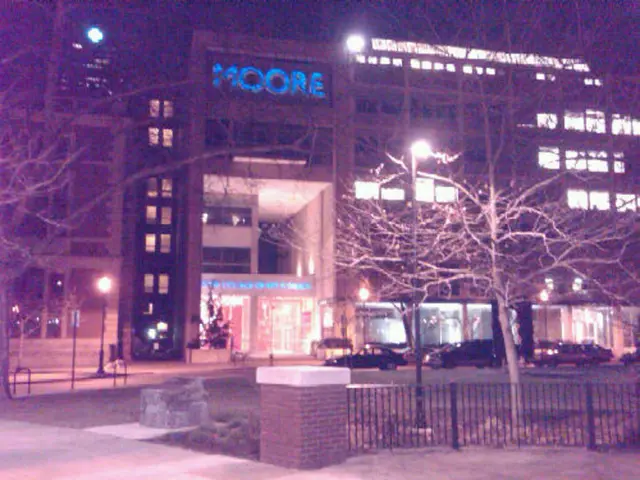Cultural References and Colloquial Expressions Unite in English Language Tradition
Pop culture and linguistics form an intriguing duo, constantly intertwining to paint a vivid picture of our societies. Their intersection creates a mesmerizing tapestry of where old meets new and where quirky idioms are spawned.
Pop culture's ever-changing output, encompassing music, visual arts, literature, and technology, has drastically reshaped the way we converse. Idioms, those colorful phrases with meanings hiding in plain sight, draw inspiration from such dynamic sources.
Consider the expression "bite the bullet," which originated from an act of courage during surgery without anesthesia. Fast-forward to modern times, and this phrase has transformed into a general term for facing any daunting task, thanks in part to its appearances in films and novels, broadening its appeal. Similarly, phrases like "go down the rabbit hole" owe their popularity to social media and TV adaptations of fables such as "Alice in Wonderland".
Pop culture icons, like movies and TV shows, can be considered bubbling crucibles, where fresh idioms merge and diffuse. Series like "The Simpsons" and "Star Trek" have indelibly marked the idiomatic lexicon with terms like "warp speed" and "donut." Meanwhile, lyrics, memes, and social media language subtly flow into everyday language. Taylor Swift's lyrical genius or social media trends like "spill the tea" have permeated our vernacular, giving old idioms spins that feel strikingly contemporary.
Pop culture serves as both a curator and magnifier when it comes to idioms. Through movies, television, and online platforms, our exposure to popular phrases is unparalleled. The blend of striking imagery with clever dialogue often keeps new idioms etched in our minds. A charismatic character's catchphrase, when remixed into a meme, contributes to this linguistic symphony. For instance, the iconic "Here's looking at you, kid," from "Casablanca," still resonates in modern usage, albeit with a transformed context.
The democratization of content creation via platforms like YouTube, TikTok, and Instagram has bolstered the dissemination of idioms. Content creators, often prolific influencers, concoct fresh idioms that swiftly work their way into the speech of their communities. As influencers introduce phrases or slang, these often speak to the challenges and triumphs of young generations, providing relatable idioms tailored to today's social dynamics.
Moreover, cultural integration through global media has led to idioms trading hands across language barriers. For example, K-pop has introduced non-Korean audiences to certain South Korean idioms, thus altering their meanings. The ever-shifting nature of pop culture continually situates English idioms within a broader cultural context, shifting their nuance and application.
As idioms adapt to align with current pop culture trends, language breathes new life and stays relevant. The integration of technology, gender roles, and social identities into pop culture often shapes changes in idioms, chronicling the era's complexities. The rapid pace at which language evolves in the digital age reveals the enduring flexibility and robustness of language, as idioms fluctuate in response to societal changes and cultural phenomena.
Indeed, idioms not only mutate but offer valuable insights into cultural identity and zeitgeist. As idioms adapt and some fade away, they provide illuminating glimpses into social dynamics and provide a vibrant historical snapshot of the era they represent. Pop culture's ability to transform idioms and reshape our perception of the world showcases the power of language as a dynamic and ever-evolving tool for human connection.
Fashion-and-beauty trends and entertainment, among other pop-culture elements, continuously influence the evolution of idioms, with phrases like "turn up the heat" derived from seductive dance moves in music videos. Similarly, the runway's daring silhouettes and bold colors have inspired idioms such as "dress to kill" and "fit like a glove".
Online platforms and social media have democratized the creation and dissemination of idioms, merging the realms of lifestyle, fashion-and-beauty, entertainment, and pop-culture. Trendy acronyms like "SLAY" and "FOMO" have permeated the vernacular, representing millennial characteristics and social dynamics.








